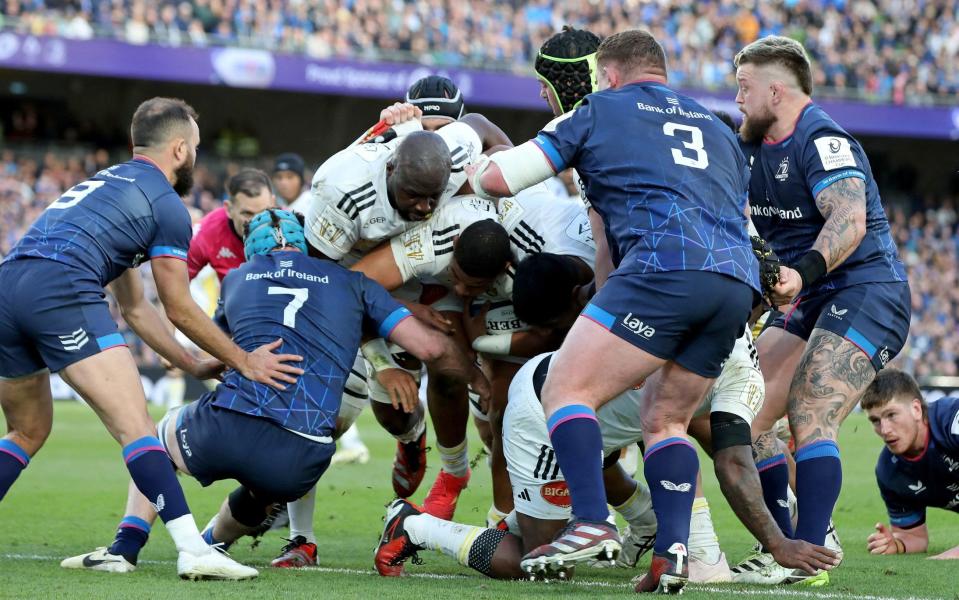The maul is a bastion of rugby union, synonymous with the sport. Search an English dictionary and the entry will be one of a handful of nouns – alongside flanker, ruck and scrum – whose definition is exclusively rugby.
The ‘tug of war’, where players are on their feet and struggle for both the ball and momentum, has become less noticeable in open play, but remains a crucial part of the set-piece. It is one of the few remaining vestiges of rugby union’s identity.
The sport in its modern guise is closer to competition than ever, but the maul is an unmistakable distinguishing feature.
Despite all that, the maul has apparently developed a bad reputation. It wasn’t long ago that one of rugby’s most revered minds, Kiwi Wayne Smith, advocated its total abolition, and in some corners it now languishes alongside the scrum in the rankings of rugby’s most old-fashioned facets.
One of those corners is the headquarters of the game’s regulators, World Rugby. In the series of amendments announced last month, the third phase of a five-step plan included a series of closed legal processes that “unions and league owners will be encouraged to implement”. One such encouraged but optional legal process focused on the maul. Just fourteen words, but one sentence that has sent ripples through the rugby world: “The ball must be played after the maul has been stopped once, not twice.”
Rob Baxter, Exeter’s director of rugby, was perplexed earlier this month. He’s not alone. World Rugby’s five-phase law change plan aims to “increase rugby’s global appeal” and “reshape the entertainment factor of rugby”, but the Chiefs boss has argued the opposite. There are historical and identity arguments to take into account when “depowering” the rugby maul – as Baxter put it – but his argument was more substantive: a powerful maul attracts defenders and creates space for nice tries; a weak one does the opposite.
Louis Deacon, the Red Roses’ forwards coach and architect of one of the most powerful mauls the sport has seen during England’s 2022 World Cup campaign, agrees with Baxter. As part of Leicester’s ruthless forward line from 2000 to 2015, Deacon saw his fair share of mauls but there are no vested interests here. Where the Red Roses had once relied on their mighty maul, Deacon realizes it must be part of an offensive arsenal for all courts.
“It’s one of the fundamental parts of what rugby union is,” the former international lock told Telegraph Sport. “I agree with Rob [Baxter]; Because the defense is so strong these days, there isn’t much space on the field. Using the maul to suck the defense in and create space is definitely a weapon.
Why did World Rugby introduce the edict? Data from both Opta and Oval shows that the number of maul attempts is decreasing year on year, accounting for less than 10 percent of scores during the last two Premiership seasons and last year’s Men’s World Cup. Oval’s data shows that defensive mauls have also become much more effective, resulting in teams attacking less often.


Neither strategic logic nor data can provide evidence that the maul has destroyed the modern game. And, pound for pound, are mauls boring? In an alternate reality, if no extra space was created by an efficient maul, would that be reason enough to castrate them? Isn’t there a primitive beauty in watching the legs of eight athletes pump at once in a desperate attempt to push their opponent backward? Isn’t that exciting in itself?
Since his arrival as Gloucester head coach, George Skivington has been very proud of the Cherry and Whites’ maul, one of the best in the competition in recent years. Skivington acknowledges there has been a ‘glitch’ this season, but in terms of the wider Premier League he believes it has laid the foundation for Northampton and Harlequins’ razzmatazz.
“I’m a big supporter,” Skivington told Telegraph Sport. “Set-piece is a big part of rugby. You can have a really good set-piece and play really good rugby. It doesn’t have to be one or the other.
“If you have a dominant maul, for example, you can execute the kind of plays that Saints have become masters of. If you know to stop the maul, you may be exposed elsewhere. These things that try to depower the set-piece will ultimately take away from attacking, running rugby because you’ll have more people on your feet defending – rugby league style.
“We have to be very careful. The Premiership is an entertaining product week in, week out, as is rugby across the board. I don’t think we need to tinker with the game much. The product is very good. It’s dangerous and a bit sad to try to keep denying the set piece.”
Skivington, like Baxter, is said to be against the Premier League adopting World Rugby’s optional maul law: “Everyone mauls something different, but there is a tug-of-war – and that’s the beauty of it. To stop once… you might as well stop tearing up if you’re doing that.”
Even at Harlequins, the Premier League’s biggest entertainers, the maul is of paramount importance. Danny Wilson, the head coach, estimates that Quins has lined out 12 times in the Premiership and Champions Cup this season – including one at a crucial moment in the thrilling quarter-final win over Bordeaux – and that he has made it in every attempt one has scored. of their last four games.
“Our maul has been strong all year,” Wilson said. “And if Quins has the ability to play two or three different ways – including a dominant set-piece of scrum and maul – then we become a much tougher team to compete against. If we have those two weapons, it will be very difficult to play against us. The best parties out there have both weapons.”
It’s advice that World Rugby and those pushing for the neutralization of the maul would do well to heed.